Our Verdict
The Legion Tower 5 is a well-made system, with clean cable management, quiet operation, and space to upgrade. But the uninspiring component choice and relatively high price make it a difficult system to recommend against the competition.
For
- Well built
- Clean looks
Against
- Uninspiring components for the cash
- Weak warranty
- Poor storage
- Where are all the ports?
PC Gamer's got your back
Lenovo's Legion gaming PCs are solid, if rather uninspiring systems with which to start your PC gaming experience. That probably sounds like I'm damning them with faint praise, but if you're looking for your first gaming PC then buying a full system from a reputable company is likely what you want to be doing, and Lenovo rigs represent a reliable platform to build upon in the future. Though they do not, however, start out with the most exciting component list.
As a leading supplier of systems across the globe, Lenovo uses a lot of parts that aren't necessarily widely available if you're building a PC from scratch yourself. It's got deals with a host of suppliers, so you end up with pretty barebones memory modules from Chinese firm, Ramaxel, and Samsung's non-consumer focused SSDs.
That should mean you ought to be getting a good deal on the parts, but actually in the end the price you'll pay for a Lenovo vs. something like an NZXT or iBuyPower machine will be very similar.
That said, its buying and manufacturing power means, while the current pricing for this AMD Legion Tower 5 is sitting around the $1,400 mark—which is a lot to pay for an RTX 3060-based system—you'll find Lenovo machines regularly on sale. There are other similarly specced Legion rigs I've found discounted online and I would be surprised not to find this on sale for around the $999 mark soon.
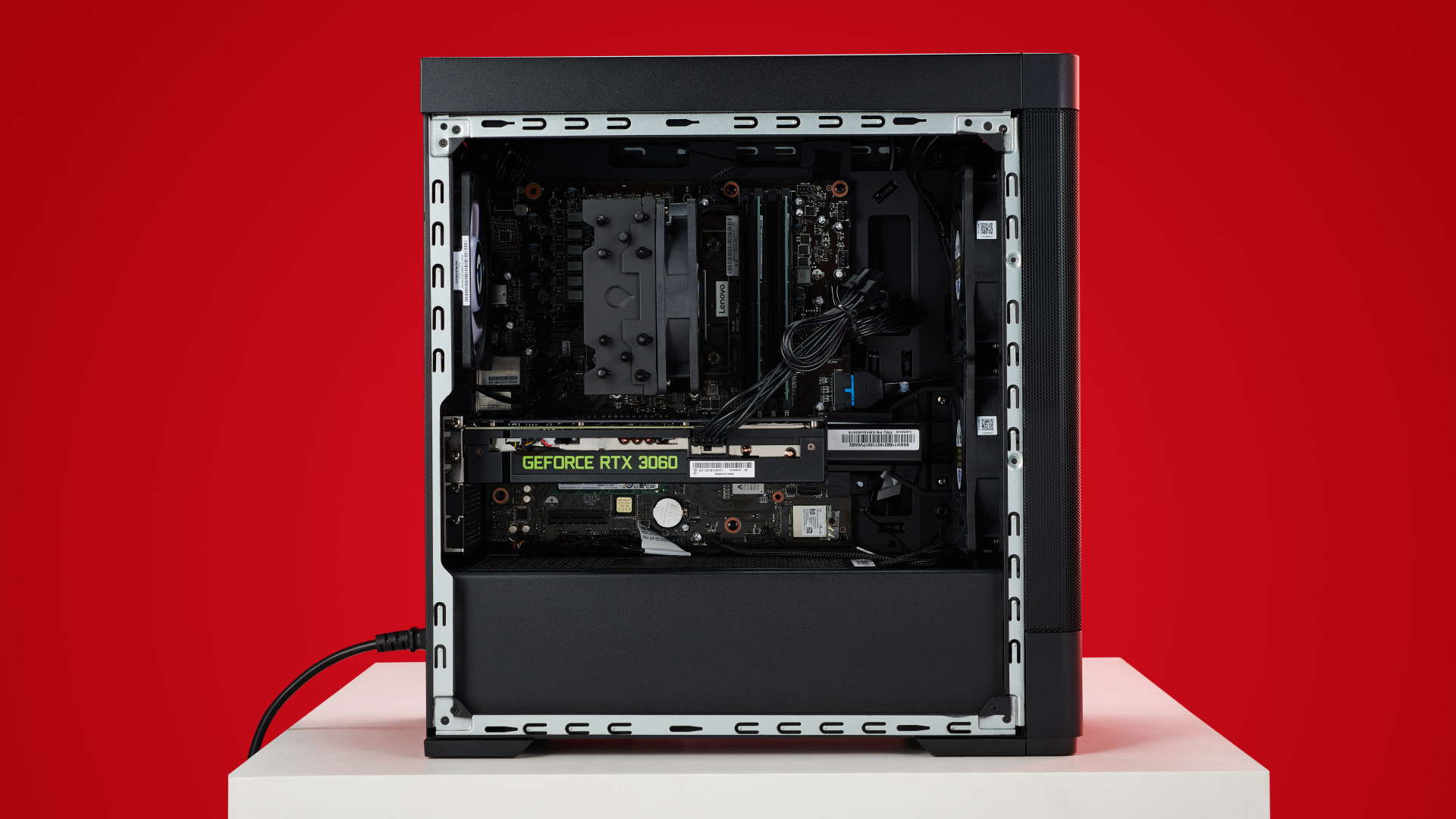
CPU: AMD Ryzen 7 5800
GPU: Nvidia RTX 3060
RAM: 16GB DDR4-3200 Ramaxel
Motherboard: Lenovo B550
Storage: 256GB Samsung PM981a SSD, 1TB WD HDD
Front I/O: 2x USB 3.0 Type-A, 1x 3.5mm mic in, 1x 3.5mm audio out
Rear I/O: 4x USB 3.0 Type-A, 1x USB 3.0 Type-C, 1x LAN, 1x 3.5mm mic in, 1x 3.5mm aux, 1x 3.5mm audio out
Networking: LAN, Wi-Fi 5
PSU: 650W
OS: Windows 11
Warranty: 1 year mail-in
Price: $1,400
The important specs, the Ryzen 7 5800 and RTX 3060 CPU and GPU combination, are pretty standard for this price point, but don't really excite. That AMD processor is an impressively powerful eight-core, 16-thread chip in terms of its productivity chops. But if we're looking for top gaming performance, the single-core prowess of Intel's 12th Gen and 13th Gen means that even its lower-spec, six-core CPUs, make for superior gaming chips.
The RTX 3060 is itself a decent mainstream GPU, but if you shop around you will find the likes of ABS Master at Newegg and Build Redux (the mainstream brand of DigitalStorm) are offering the far more powerful RTX 3060 Ti for around the same sort of price. Sadly we've still not found system builders eschewing the GeForce GPUs in favour of the more powerful AMD cards in the same price point.
If Lenovo was jamming an RX 6700 XT into this build in place of the RTX 3060, which costs around the same in retail right now, you'd end up with much higher performance than the Legion Tower 5 is capable of delivering here.
Gaming performance
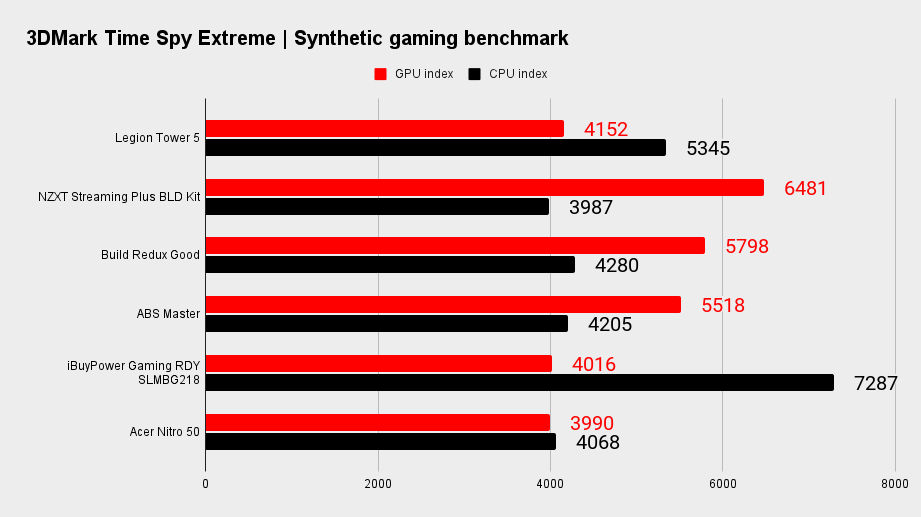
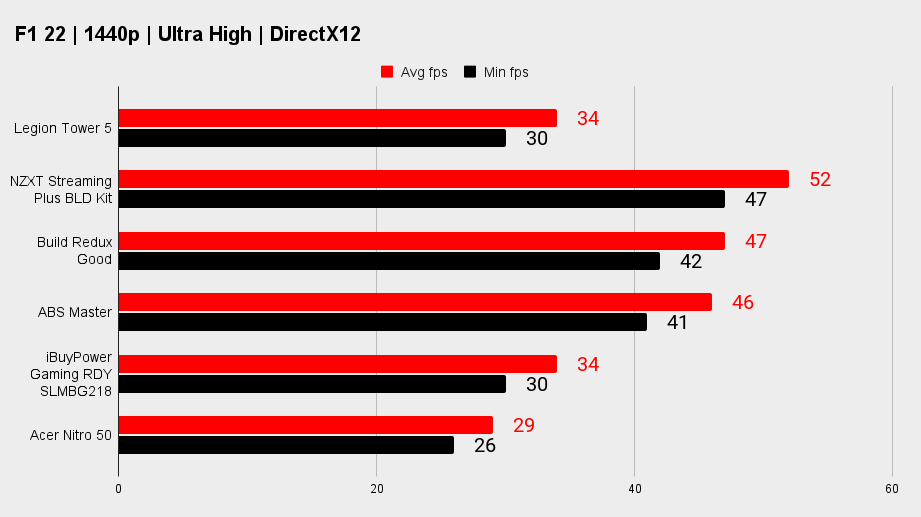
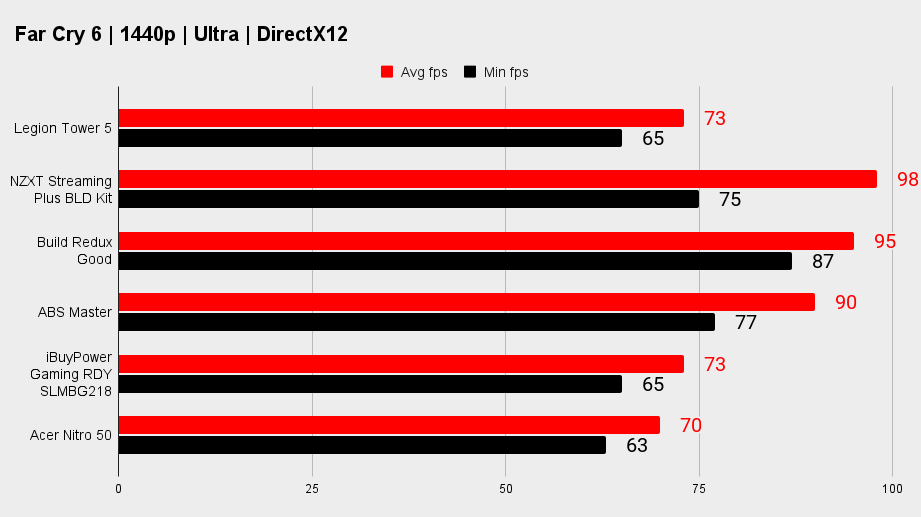
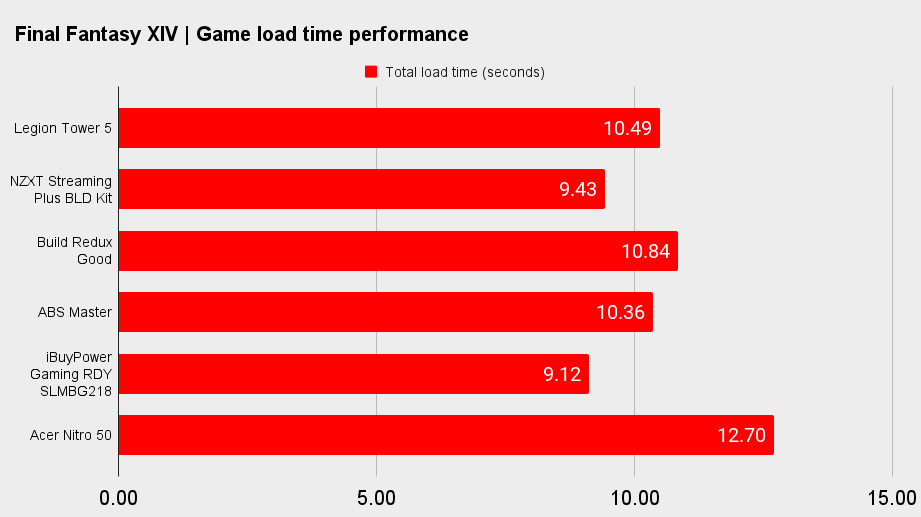
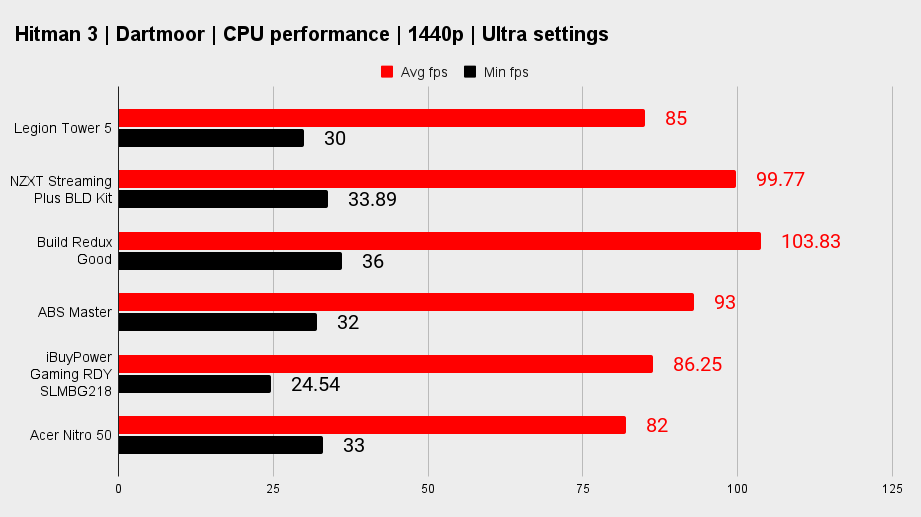
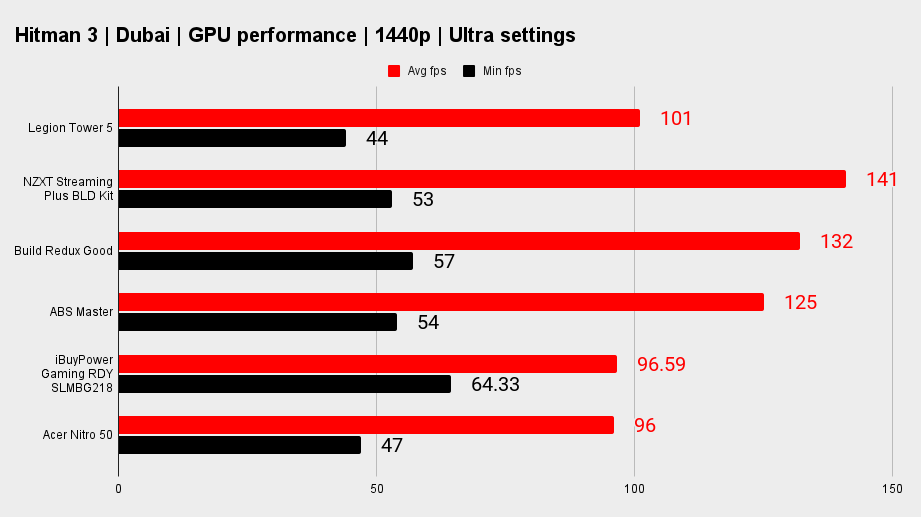
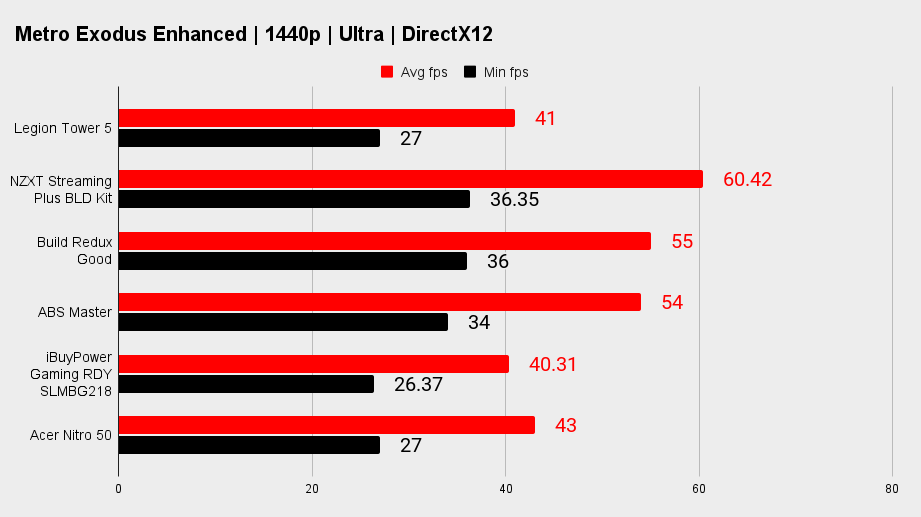
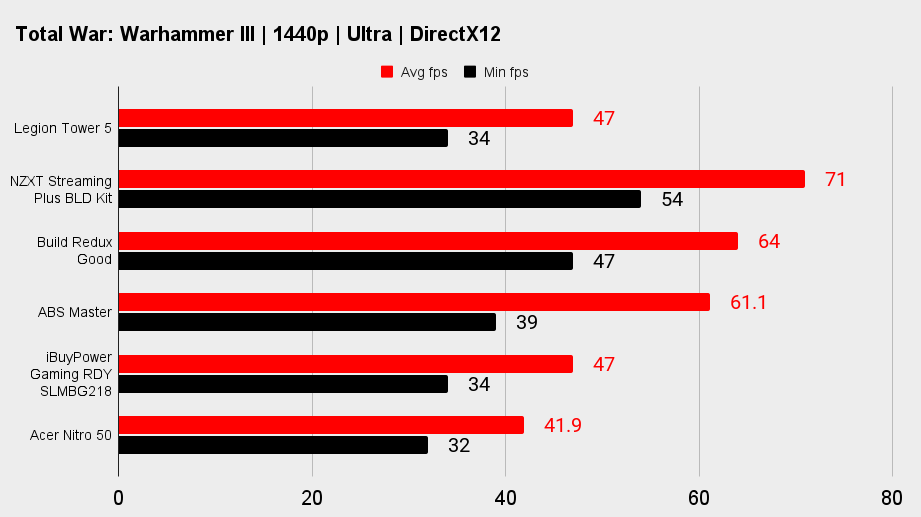
System performance
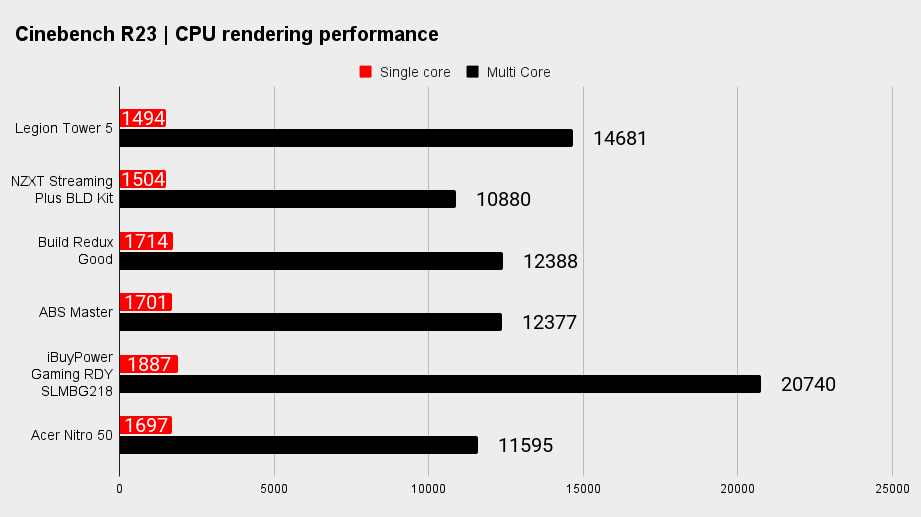
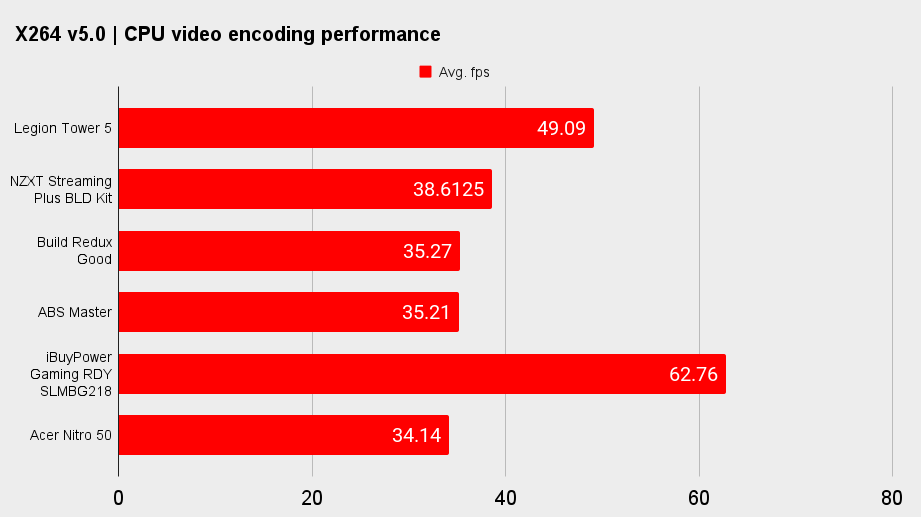
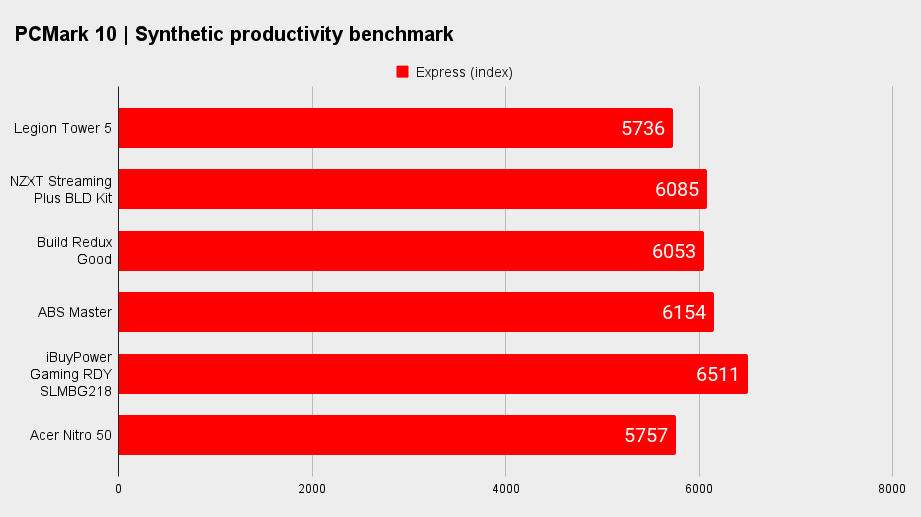
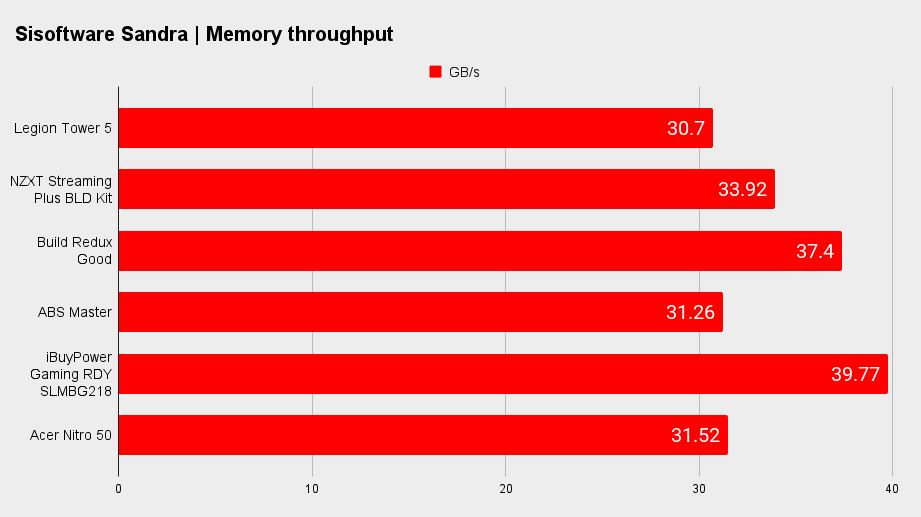
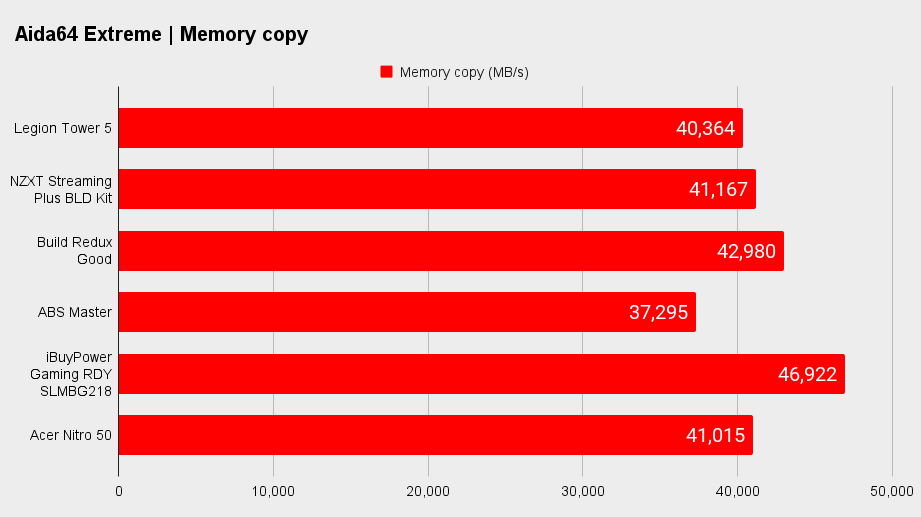
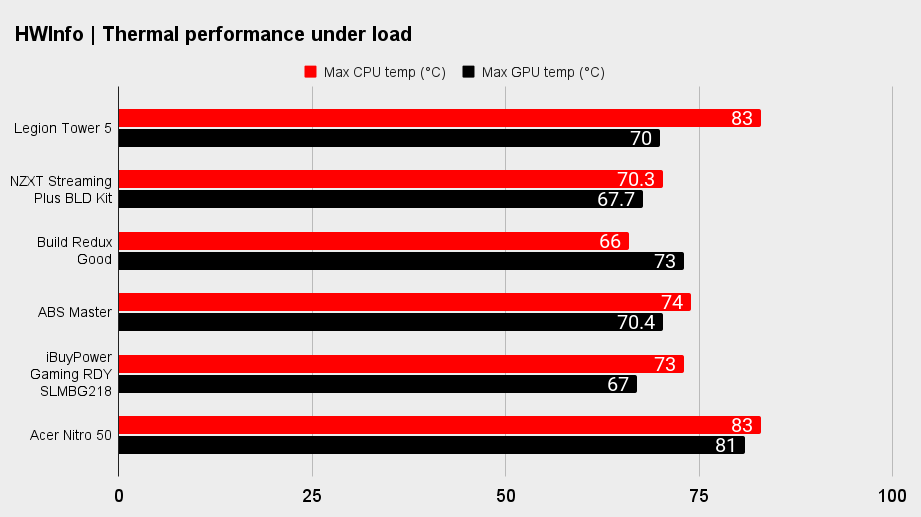
Our benchmarks bear that out, with the CPU core showing excellent multi-core performance, but comes way down the list for single-core. And that means it's not really driving its RTX 3060 past the other similarly specced machines, and is obviously behind those with superior graphics cards installed inside them.
It does get a little toastie with the single fan tower CPU cooler installed in it, but I never found it got too loud during gaming or under productivity loads.
But the CPU and GPU, though inevitably important, aren't going to tell the whole story themselves. Storage is one place where a lot of pre-built gaming PCs fall down, and where system builders seem to think they can save a bit of cash. The 256GB Samsung SSD in the Lenovo is a solid performer, but that is far too small a drive to run a modern gaming PC on. 75GB of it is already used from the instant you pull it out of the box. Sure, you do get a 1TB data drive, but it's a spinning platter hard drive, and you shouldn't be running games from that ancient tech in 2023.
There really isn't any excuse these days, either, with other systems either offering half terabyte drives, or even full 1TB models such as the WD Blue SN570 we've seen in the NZXT and iBuyPower rigs we've tested.
There's also no excuse for the paucity of connectivity from the basic B550 Lenovo motherboard at the heart of this thing. The fact there are only four USB ports on the back panel (five if you include the Type-C connection) makes Lenovo seem utterly miserly. The huge gaps on the back plate look almost comical.
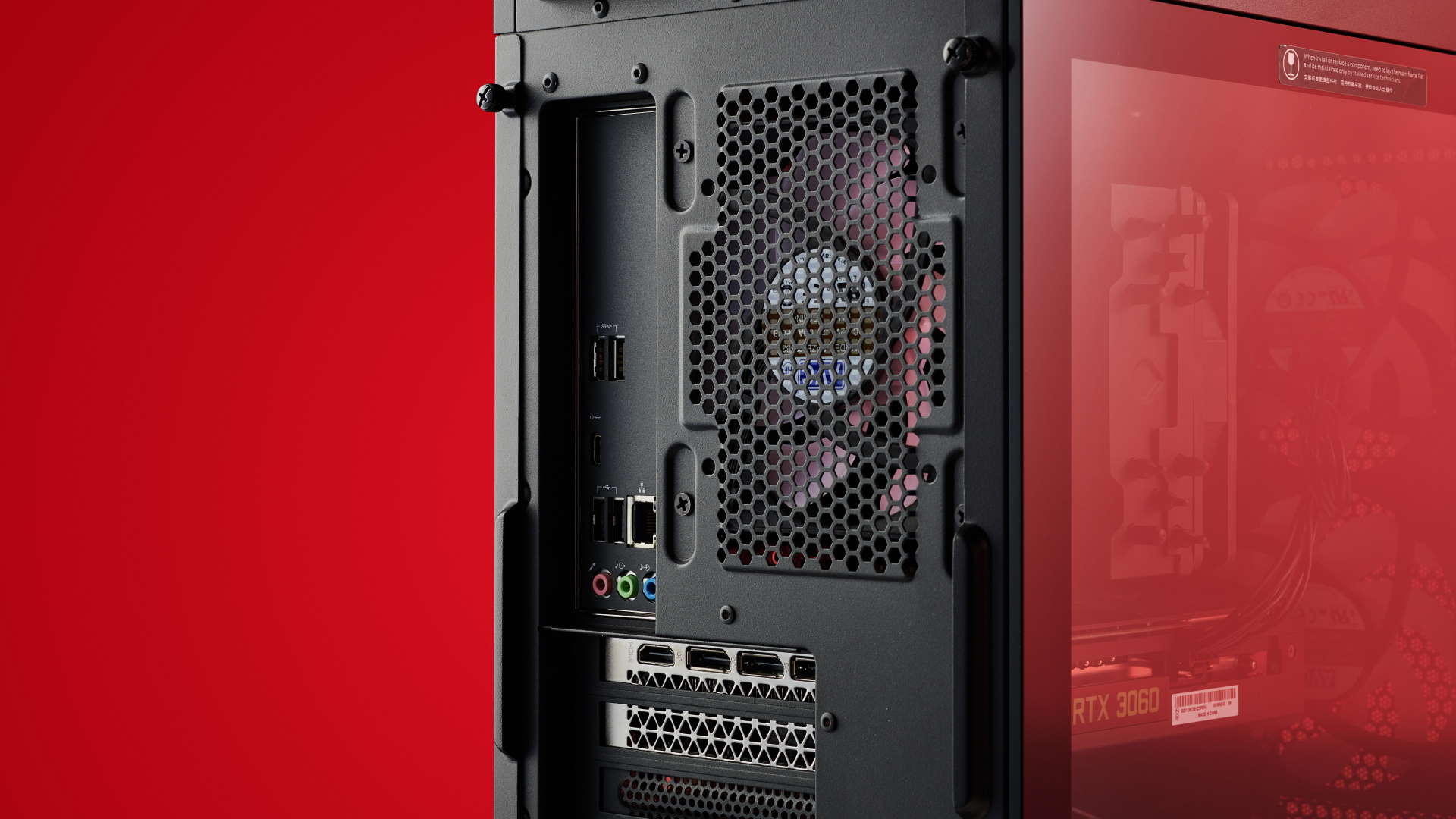
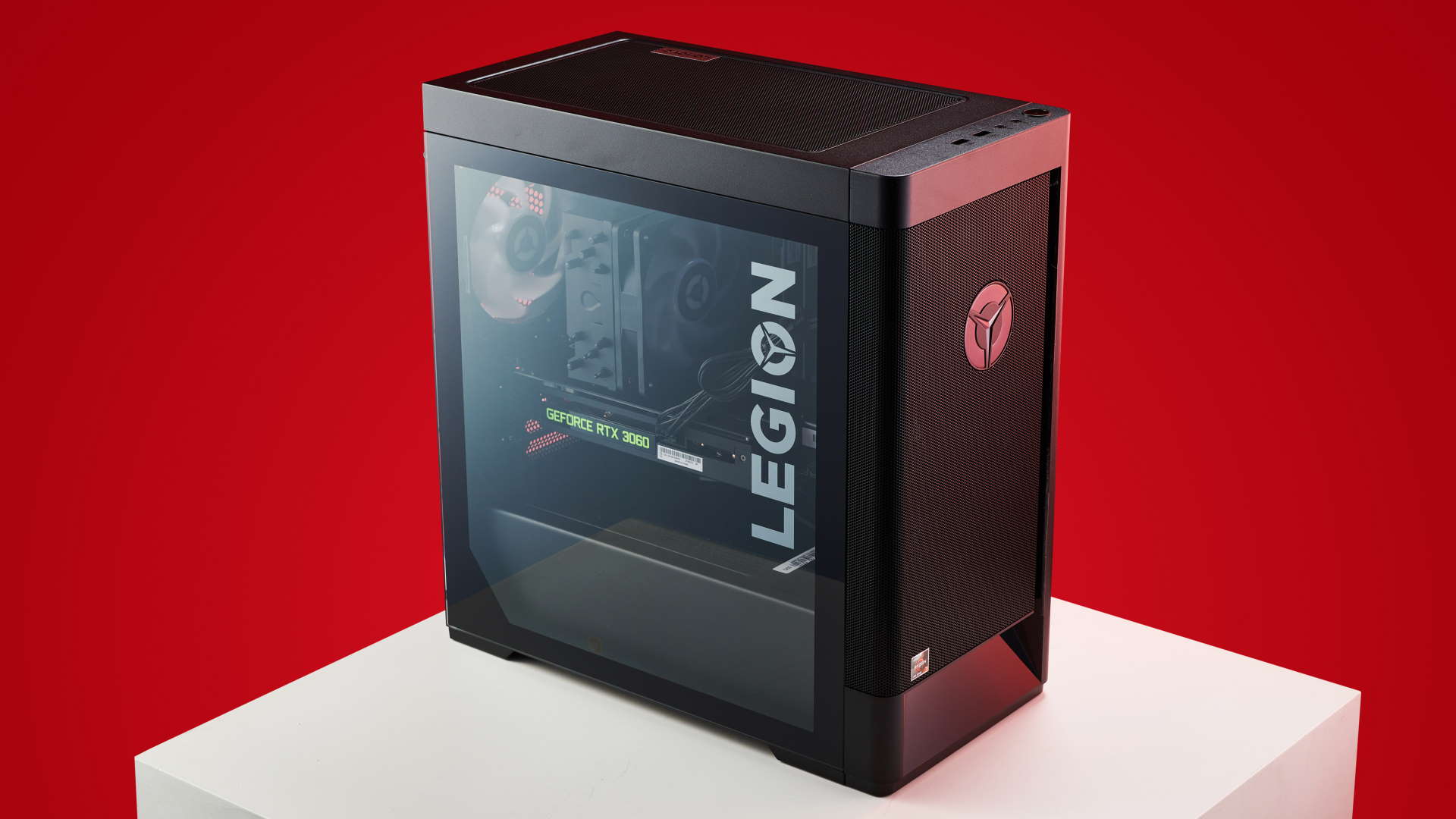

The actual build quality, however, is really good. It's clean, well laid out and there's a bunch of space in there for upgrades, too. And, of course, it's got RGB illumination inside it, but interestingly you do have to turn that on via the installed Vantage software as it ships in stealth mode. There is a bit of bloatware in there, though it's not too intrusive and you can always uninstall McAfee.
The Lenovo Legion Tower 5 ends up being one of those pre-built PCs that would work comfortably as 'my first gaming PC' as it comes from a reputable manufacturer. Though the one year mail-in warranty (you pay to ship it to Lenovo and they pay to ship back) feels a bit weak on a $1,400 piece of hardware.
Despite some Lenovo branded, the otherwise no-name motherboard, RAM, and GPU componentry inside are all standard parts. Unlike an Alienware system, that means as you get more confident in your PC gamer identity you can then upgrade parts piecemeal without struggling to fit them into a proprietary system.
That would be fine if it was cheaper than the competition, but the Legion machines retain the same sort of pricing as more boutique PC builders. And because of that I'm going to stick with our recommendation that the best way of getting into the hobby, particularly those with a hankering for tinkering, are those darling NZXT DIY BLD kits. And hell, they're a great purchase even if you're well versed in PC building, too: they end up with a higher gaming spec and you may just learn something new as you go.
The Legion Tower 5 is a well-made system, with clean cable management, quiet operation, and space to upgrade. But the uninspiring component choice and relatively high price make it a difficult system to recommend against the competition.

Dave has been gaming since the days of Zaxxon and Lady Bug on the Colecovision, and code books for the Commodore Vic 20 (Death Race 2000!). He built his first gaming PC at the tender age of 16, and finally finished bug-fixing the Cyrix-based system around a year later. When he dropped it out of the window. He first started writing for Official PlayStation Magazine and Xbox World many decades ago, then moved onto PC Format full-time, then PC Gamer, TechRadar, and T3 among others. Now he's back, writing about the nightmarish graphics card market, CPUs with more cores than sense, gaming laptops hotter than the sun, and SSDs more capacious than a Cybertruck.

